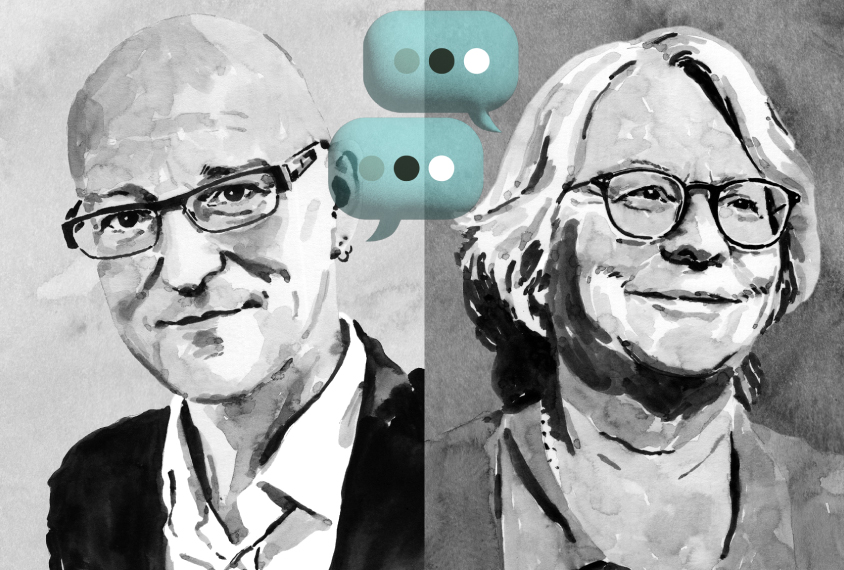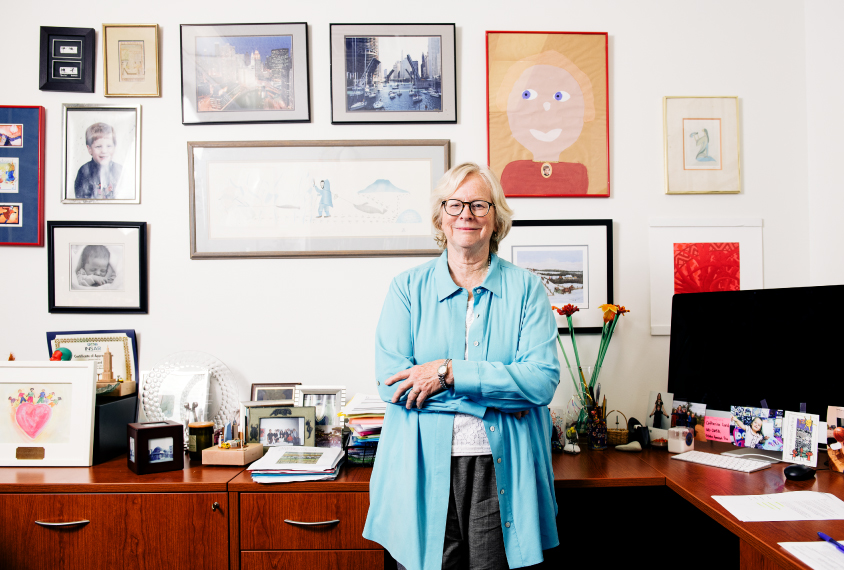Catherine Lord is distinguished professor of psychiatry and education at the University of California, Los Angeles. She specializes in diagnosis, social and communication development, and intervention in autism.
Catherine Lord
Director, Center for Autism and the Developing Brain
Weill Cornell Medicine
From this contributor
Your questions about the Lancet Commission and ‘profound autism,’ answered
Tony Charman and Catherine Lord answer questions from Spectrum’s webinar on the Lancet Commission’s recommendations for autism research.

Your questions about the Lancet Commission and ‘profound autism,’ answered
Catherine Lord: Lessons from a storied career in autism research
Catherine Lord's career has been defined by relationships: with mentors, protegees and, above all, with autistic people and their families.

Catherine Lord: Lessons from a storied career in autism research
Measures of success for adults with autism need to mature
As children with autism grow into adults, the challenge is in measuring the skills that matter most in their daily lives.

Measures of success for adults with autism need to mature
Optimal outcome
Some children classified as having autism outgrow their diagnosis, but it’s not yet clear why this group does better, says Cathy Lord.
Autism and the arts: “Lucy” captures disorder‘s complexity
Itʼs not often that movies, books and plays represent science accurately, or with a true and empathetic understanding of its complexity.

Autism and the arts: “Lucy” captures disorder‘s complexity
Explore more from The Transmitter
Two neurobiologists win 2026 Brain Prize for discovering mechanics of touch
Research by Patrik Ernfors and David Ginty has delineated the diverse cell types of the somatosensory system and revealed how they detect and discriminate among different types of tactile information.

Two neurobiologists win 2026 Brain Prize for discovering mechanics of touch
Research by Patrik Ernfors and David Ginty has delineated the diverse cell types of the somatosensory system and revealed how they detect and discriminate among different types of tactile information.
Shifting neural code powers speech comprehension
Dynamic coding helps explain how the brain processes multiple features of speech—from the smallest units of sounds to full sentences—simultaneously.

Shifting neural code powers speech comprehension
Dynamic coding helps explain how the brain processes multiple features of speech—from the smallest units of sounds to full sentences—simultaneously.
Astrocytes orchestrate oxytocin’s social effects in mice
The cells amplify oxytocin—and may be responsible for sex differences in social behavior, two preprints find.

Astrocytes orchestrate oxytocin’s social effects in mice
The cells amplify oxytocin—and may be responsible for sex differences in social behavior, two preprints find.